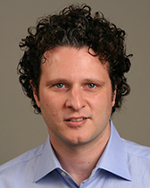Peter C. B. Phillips (IAAE Lecturer)
Yale University

Educated at the University of Auckland and the London School of Economics and Political Science, he is currently Sterling Professor of Economics and Professor of Statistics at Yale University, Distinguished Professor at the University of Auckland, Distinguished Term Professor at Singapore Management University, and Adjunct Professor at the University of Southampton. His main research interests are in econometric theory, financial econometrics, time series and panel data econometrics, and applied macroeconomics. His work on finite sample theory, trends, unit roots, bubbles, and partially identified models have subsequently developed into major fields of scientific inquiry. He is founder and Editor of Econometric Theory and founding Editor of Themes in Modern Econometrics for Cambridge University Press. He has an extended family fellowship of more than 80 Ph.D students in econometrics, many of whom are now prominent econometricians.
Keynote lecture title: HP Filter: Asymptotic Theory and Prediction
A. Michael Spence
New York University and Stanford University

Nobel Laureate A. Michael Spence joined New York University Leonard N. Stern School of Business as a professor of economics in September 2010. He is a senior fellow at the Hoover Institution and the Philip H. Knight Professor Emeritus of Management in the Graduate School of Business at Stanford University.
Professor Spence, whose scholarship focuses on economic policy in emerging markets, the economics of information, and the impact of leadership on economic growth, was chairman of the independent Commission on Growth and Development (2006 - 2010), a global policy group focused on strategies for producing rapid and sustainable economic growth, and reducing poverty. He also serves as a consultant to PIMCO, a senior adviser at Oak Hill Investment Management, and as a member of the board of the Stanford Management Company as well as a number of public and private companies.
A Rhodes Scholar and the recipient of many honors and awards, Professor Spence was awarded the Nobel Memorial Prize in Economic Sciences in 2001 and the John Bates Clark Medal from the American Economics Association in 1981. He is the author of three books and 50 articles, and is a member of the American Economic Association and a fellow of the American Academy of Arts and Sciences and the Econometric Society.
Professor Spence served as Philip H. Knight Professor and dean of the Stanford Business School from 1990 to 1999. Before that, he was a professor of economics and business administration at Harvard University, chairman of its economics department, and dean of its Faculty of Arts and Sciences.
Professor Spence earned a Ph.D. from Harvard University in 1972, a B.A./M.A. from Oxford University in 1968 and a B.A. (summa cum laude) from Princeton University in 1966.
Keynote lecture title: Convergence in the Post Crisis Global Economy
M. Hashem Pesaran
University of Southern California and University of Cambridge

M. Hashem Pesaran is the John Elliot Distinguished Chair in Economics at the University of Southern California, Emeritus Professor of Economics at the University of Cambridge, and a Professorial Fellow of Trinity College, Cambridge. He also holds the directorship of USC Dornsife Institute for New Economic Thinking, and the Centre for Applied Financial Economics at USC. Previously, he was head of the Economic Research Department of the Central Bank of Iran and the Under-Secretary of the Ministry of Education, Iran. He has also been a Professor of Economics and the Director of the Applied Econometrics Program at UCLA, and a Visiting Professor at the Institute of Advanced Studies in Vienna. He was awarded Honorary Doctorates by the University of Salford, the University of Goethe, Frankfurt, Maastricht University, and University of Economics in Prague. He is the recipient of the 1990 George Sell Prize from The Institute of Petroleum, London, the 1992 Royal Economic Society Prize for the best article published in The Economic Journal for the years 1990 and 1991, the joint recipient of the Econometric Reviews Best Paper Award 2002-2004, and the joint recipient of the Best Paper Award 2004-2005 in the International Journal of Forecasting. Dr Pesaran was the founding editor of the Journal of Applied Econometrics (1986-2014), and a co-developer of Microfit, an econometric software package published by Oxford University Press. He was named one of “The World’s Most Influential Scientific Minds 2014” by Thomson Reuters in 2014. He has over 200 publications published in leading scientific journals and edited volumes in the areas of econometrics, empirical finance and macroeconomics and the Iranian economy. He is an expert in the economics of oil and the middle-east and his research has been cited almost 50K times according to Google Scholar. He holds a PhD degree in economics from Cambridge University. He is currently the President of the International Iranian Economic Association, and Chair of the Board of Directors of the International Association for Applied Econometrics.
Keynote lecture title: Oil Prices and the Global Economy: Is It Different This Time Around? [paper] [slides]
Peter Arcidiacono (FBoF Lecturer)
Duke University

Peter Arcidiacono joined Duke University in 1999 and was awarded tenure as an associate professor in 2006. His teaching and research focus on labor economics, applied econometrics, and applied microeconomics. Before becoming a member of the Duke faculty, he was awarded the Sloan Dissertation Fellowship for the year of 1997-98. Peter earned this award while attending the University of Wisconsin, where he earned his Ph.D. in economics in 1999. He began his higher education studies in economics at Willamette University, where he received his B.S. in 1993.
Since accepting his professorship at Duke University, Peter has also taken on the position of research associate for the National Bureau of Economic Research. Peter also serves as co-editor for the Journal of Labor Economics and the Economic Inquiry, and as associate editor for the Journal of Applied Econometrics and AEJ: Applied Microeconomics.
Peter's two main lines of work are on affirmative action in higher education and estimation of dynamic discrete choice models. Peter has investigated how affirmative action in admissions affects future earnings, college attendance rates, inter-racial interaction, and the match between the student and the school. Peter has also developed tools to facilitate estimation of dynamic discrete choice models. Other subjects that Peter has addressed with his writing and research include minimum wages, teen sex, and peer effects. His work has been published in Econometrica, Review of Economics and Statistics, and the International Economic Review among many others.
Peter received a grant from the National Science Foundation for his work on “CCP Estimation of Dynamic Discrete Choice Models with Unobserved Heterogeneity,” the research for which was conducted in 2007-2009 with Paul Ellickson and Robert Miller. Between 2003-2005, Peter also received grants from NICHD for his creation of a dynamic model for teen sex, and from the Smith Richardson Foundation for his paper, “Does the River Spill Over?”
Keynote lecture title: Equilibrium Grade Inflation with Implications for Female Interest in STEM Majors
Aureo de Paula (DEMS Lecturer)
University College London

Aureo de Paula is reader at the Economics Department, University College London, professor of economics at the Sao Paulo School of Economics-FGV, researcher at CeMMAP, research fellow at the Institute for Fiscal Studies, research fellow at CEPR, research affiliate at the Population Studies Center (University of Pennsylvania).
Keynote lecture title: Identifying and Estimating Social Connections from Outcome Data
Francesca Molinari (SIdE-IEA Lecturer)
Cornell University

Francesca Molinari is Professor in the Department of Economics at Cornell University. She received her Ph.D. from the Department of Economics at Northwestern University, after obtaining a BA and Masters in Economics at the Università degli Studi di Torino (Italy). Her research interests are in econometrics, both theoretical and applied. Most of her theoretical work is in partial identification, while her empirical work is concerned with estimation of risk preferences.
Keynote lecture title: Preference Types and Welfare in Insurance Markets
Andrew Patton (BoI-CG Lecturer)
Duke University

Andrew Patton is a Professor of Economics at Duke University. He moved to Duke in 2009, and previously taught at the University of Oxford and the London School of Economics. Andrew completed his undergraduate studies in finance and economics at the University of Technology, Sydney, and his PhD in economics at the University of California, San Diego. He is currently Co-Editor of the Journal of Financial Econometrics and the Econometrics Journal, and serves on the editorial boards of the Journal of Business and Economic Statistics and the Journal of Applied Econometrics, and has previously served as an academic consultant to the Bank of England. Andrew’s research interests lie in financial econometrics, with emphasis on forecasting volatility and dependence, forecast evaluation methods, and the analysis of hedge funds. His research has appeared in the Journal of the American Statistical Association, Journal of Finance, Journal of Econometrics, Journal of Financial Economics and Review of Financial Studies, among others, and has been supported by grants from INQUIRE UK, the Engineering and Physical Sciences Research Council (UK) and the Leverhulme Trust. He has presented his research at over 200 seminars and conferences around the world.
Keynote lecture title: Modeling and Forecasting (Un)Reliable Realized Covariances for More Reliable Financial Decisions
Giorgio Primiceri (CCA Lecturer)
Northwestern University

Giorgio Primiceri is a Professor of Economics at Northwestern University. He works in the areas of macroeconomics and applied time-series econometrics, and his research has primarily focused on understanding the causes and propagation mechanisms of macroeconomic fluctuations, the effect of monetary policy on business cycles, and the role of household debt and house prices in macroeconomic dynamics. Giorgio was the recipient of a Sloan Foundation Research Fellowship. He is a research associate of the National Bureau of Economic Research, a research fellow of the Centre for Economic Policy Research, and a member of the CEPR Euro Area business cycle dating committee. He is also an associate editor of Econometrica, the Journal of Applied Econometrics, and the Journal of Monetary Economics.
Keynote lecture title: On the origins of the U.S. housing and credit boom
